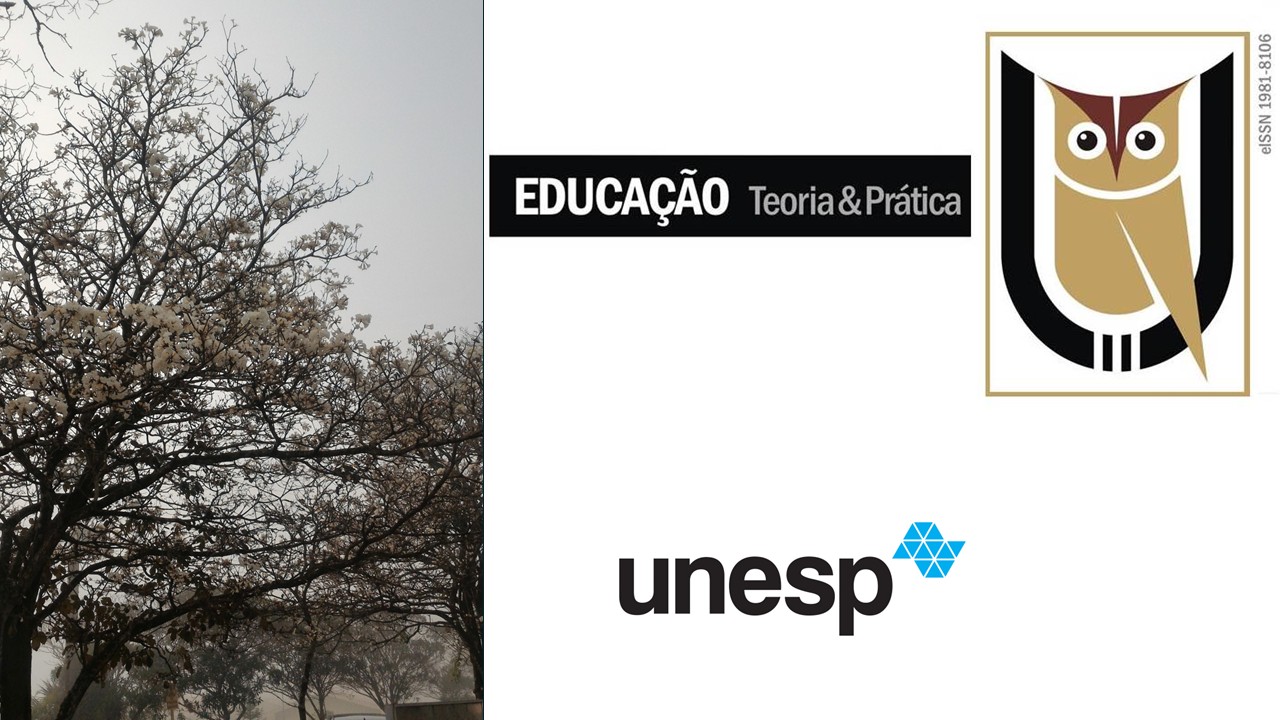Affections, meanings and perceptions related to the school environment for high school students
DOI:
https://doi.org/10.18675/1981-8106.v32.n.65.s16039Keywords:
School. Perception. Environmental Psychology.Abstract
This article aims to analyze theaffections, meanings and perceptions of the school environment for young students from a public school in Fortaleza, Brazil, from the perspective of Historical-Cultural Theory and Environmental Psychology. Such analysis considers, therefore, the person-environment relations as generators of a mutuality of affections that interfere in the way young people think, feel, perceive and behave in the school space. This affectation causes changes in the interrelations that occur between young students and the educational environment, favoring participation, involvement or withdrawal from school. 42 young people from the 2nd year of high school participated in the qualitative research, and the Generating Affective Maps Instrument (IGMA) was used for data collection. The results indicated that students internalize social meanings about the school environment as if they were their own senses; the affections unveiled about this place are ambiguous, contrasting happiness and/or prejudice; the school is a place of interrelationships that affect and transform the person as well as the environment, in addition to being a place for projecting dreams and expectations, perspectives and preparation for the future.
References
AMARAL, V. L. Psicologia da Educação. Natal: EDUFRN, 2007.
BOMFIM, Z. A. C. Cidade e Afetividade: Estima e Construção dos Mapas Afetivos de Barcelona e São Paulo. Fortaleza: Edições UFC, 2010.
BOMFIM, Z. A. C. et al. Affective maps: validating a dialogue between qualitative and quantitative methods. In: MIRA, R. G.; DUMITRU, A. (org.). Urban sustainability: innovate spaces, vulnerabilities and opportunities. Coruña: Deputación da Coruña, 2014, p. 131-147.
BOMFIM, Z. A. C.; FEITOSA, M. Z. de S.; FARIAS, N. F. Afetividade e lugar como categorias de mediação no laboratório de pesquisa em Psicologia Ambiental. In: LIMA, A. F.; GERMANO, I. M. P.; SABÓIA, I. B.; FREIRE, J. C. Sujeito e Subjetividades contemporâneas. Estudos do programa de pós-graduação em Psicologia da UFC. Fortaleza: Edições UFC, 2018, p. 455-482.
BOMFIM, Z. A. C.; MAIA, C. M.; LIMA, A. C.; COSTA, A. C. A afetividade no contexto universitário: a relação de apego entre professores, estudantes e servidores com o campus. In: HIGUCHI, M. I. G.; KUHNEN, A.; PATO, C. (org.). Psicologia Ambiental em Contextos Urbanos. Florianópolis: Edições do Bosque, 2019, p. 86-114.
CAMPOS-DE-CARVALHO, M. I.; ELALI, G. A. Ambientes para crianças pequenas. In: HIGUCHI, M. I. G.; KUHNEN, A.; PATO, C. (org.). Psicologia Ambiental em Contextos Urbanos. Florianópolis: Edições do Bosque, 2019, p. 58-72.
CAVALCANTE, S.; ELALI, G. A. (org.). Temas básicos em Psicologia Ambiental. Petrópolis: Vozes, 2011.
CAVALCANTE, S.; ELALI, G. A. (org.). Psicologia Ambiental: conceitos para a leitura da relação pessoa-ambiente. Petrópolis, RJ: Vozes, 2018.
CAVALCANTE, S.; ELIAS, T. F. Apropriação. In: CAVALCANTE, S.; ELALI, G. A. (org.). Temas básicos em Psicologia Ambiental. Petrópolis: Vozes, 2011, p. 63-69.
MARINHO, A. S. A cartografia afetiva na leitura do espaço escolar: compreendendo olhares e subjetividades. 2018. Artigo (Licenciatura em Geografia) – Departamento de Geografia, Universidade Federal do Ceará, Fortaleza, 2018.
MASSOLA, G. M.; SVARTMAN, B. P. Enraizamento. In: CAVALCANTE, S.; ELIALI, G. A. (org.). Psicologia Ambiental: conceitos para a leitura da relação pessoa-ambiente. Petrópolis, RJ: Vozes, 2017, p. 75-88.
MILLER, S.; ARENA, D. B. A constituição dos significados e dos sentidos no desenvolvimento das atividades de estudo. Ensino Em Re-Vista, Uberlândia, v. 18, n. 2, p. 341-353, nov. 2011.
MIRA, R. G. Aportación de la Psicologia Ambiental. In: MIRA, R. G. (org.). La ciudad percibida. Una psicología ambiental de los barrios de A Coruña. Coruna: Universidade da Corunã, 1997, p. 23-36.
MOREIRA, A. R. C. P.; FERREIRA, J. A. A dimensão educativa do pátio escolar: contribuições da psicologia ambiental. In: HIGUCHI, M. I. G.; KUHNEN, A.; PATO, C. (Orgs.). Psicologia Ambiental em Contextos Urbanos. Florianópolis: Edições do Bosque, 2019, p. 73-85.
OLIVEIRA, A. B., F; LIMA, A. I. B. Vigotski e os processos criativos de professores ante a realidade atual. Educação & Realidade, Porto Alegre, v. 42, n. 4, p. 1399-1419, out./dez. 2017. DOI: http://dx.doi.org/10.1590/2175-623662025. Disponível em: https://www.scielo.br/j/edreal/a/T38MhGkwn35JLT33Zhct4Cr/?lang=pt. 15 de julho de 2018.
TUAN, Yi-Fu. Topofilia – um estudo da percepção, atitudes e valores do meio ambiente. Londrina: Eduel, 1983.
VYGOTSKY, L. S. A construção do pensamento e da linguagem. Tradução Paulo Bezerra. São Paulo: Martins Fontes, 2000.
Downloads
Published
How to Cite
Issue
Section
License
Authors who publish in this journal agree to the following terms:
a) Authors assign copyright to the journal, with the work simultaneously licensed under the Creative Commons Attribution License that allows sharing of the work with acknowledgment of authorship and publication in this journal.
b) The policy adopted by the Editorial Committee is to assign copyright only after a period of 30 months from the date of publication of the article. After this time, authors interested in publishing the same text in another work must send a letter to the Editorial Committee requesting the release of the assignment of copyright and wait for a response.
c) This journal provides public access to all its content, since this allows greater visibility and reach of published articles and reviews. For more information on this approach, visit the Public Knowledge Project, a project that developed this system to improve the academic and public quality of research, by distributing OJS as well as other software to support the public access publication system to academic sources. The names and email addresses on this website will be used exclusively for the purposes of the journal and will not be available for other purposes. This journal provides open any other party  This work is licensed under a Creative Commons License
This work is licensed under a Creative Commons License











